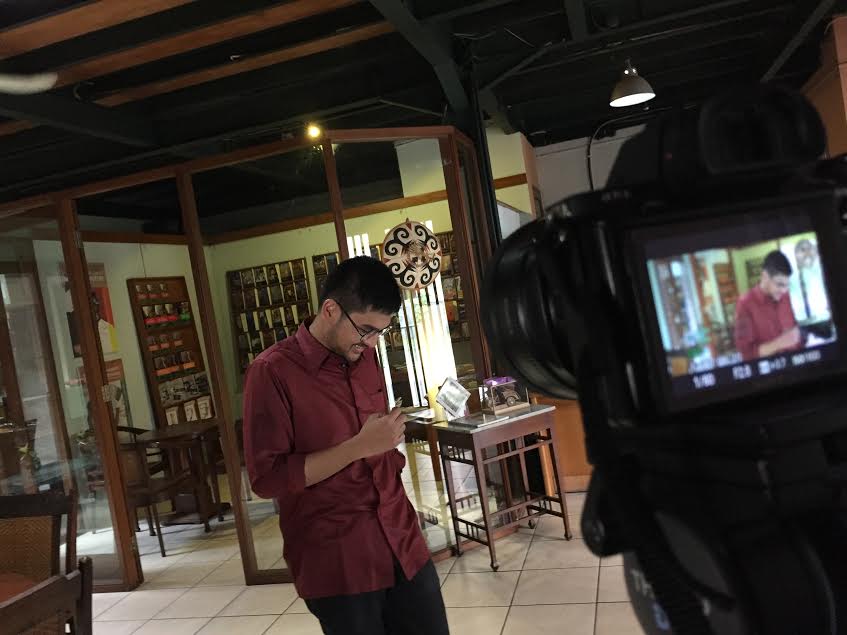One’s choice of university majors and career often don’t match. If you’re currently agonizing about this discrepancy, you’re not alone. Here’s the story of Dylan Amirio and how his International Studies major has helped him in mastering the dynamic and fast-paced field of journalism.
Back when I was two months away from graduating university, I haven’t thought of what I was going to do afterwards. Life seemed hazy beyond that Bachelor of Arts degree I’ve been studying for three years at the University of Melbourne. I was majoring mainly in International Studies, with a large interest in sociology. One might think that the only option was to go into international political agencies or political Non-Governmental Organization (NGO) with that degree, such as the United Nations (UN) or even Australia’s Department of Foreign Affairs and Trade (DFAT). I had learned by way of my studies that DFAT only accepted Australian nationals and that there aren’t that many international relations-related jobs that were open for fresh graduates. Within the confusion, I began to think outside of my subject and focused on what it was I can do best and what it is I wanted to improve about myself.

I wanted to improve my people skills as well as maintain the strongest skill I have: writing. In university I was the severely silent type who had trouble getting to know new people and had trouble asking people for help. This motivation to develop myself lead to opportunities that would improve my self and my skills, mainly in the last two semesters. It was all I needed. Five months after graduating in 2013, I landed a position as a journalist for The Jakarta Post, with the chance to maintain my English writing skills while forcing myself to interact with people in ways I had never been comfortable with years before.
In securing a job after graduating, what matters is ultimately the skills that you can do rather than what you are studying. People who studied aerospace engineering might end up in the financial industry due to their skills with numbers. People taking science majors could end up as business people because they either are following their passion or they have very good business skills. In my case, I ended up in journalism, despite not having much of an interest in it before. International studies, sociology and journalism are connected slightly in terms of subject, but are very interconnected in terms of the amount of writing expected and the dexterity of the writing itself.

Currently, I am in my third year in my career as a journalist at Indonesia’s largest (only) English language newspaper. Indeed, in the first few months, it took me awhile to adjust to the workforce mentality. Little by little I managed to get through it and master what I do. All I do basically is write, in English, as I did for the three years I was in university. Hence, the transition was smooth in the skill-sense. What helped me transition smoothly to the engaging role of a journalist was the fact that I began to take part in the Indonesian Students Association (PPIA) in my last two semesters of my studies. It helped me to meet a lot of people and become more involved in the community as I gave my time and skills towards helping fellow friends. Also, it helped bulk up my resume.
If you have the chance to help out your friends in campus activities, then do it. It will benefit you more than just keeping to yourself, where your skills would only be selfishly used on your own terms. Not that it’s an entirely bad thing though. You need to realize what it is you can do best because it is your skills that will make you stand out from others.
If you have interests in other fields and are willing to take your time and energy to learn them, then do it. It adds to your skill pool and your scope as well. However, be wary of your abilities too. At the time of graduation, I was also developing an interest in sound engineering. At the time, my knowledge and skill in that field was not as developed yet for me to actually pursue it as a career. Plus, sound engineering jobs aren’t really that easy to find. It was back to realizing what I can do best.
In order to really apply myself at a maximal level, and to have a greater impact, I had to go back to Indonesia. Turns out that coming home was one of the best decisions I’ve made in my life, despite Indonesia’s frustrating social conditions. After years at The Jakarta Post, my primary skill has only grown stronger, mainly due to the fact that I maintained its use throughout my job. Therefore, it never went away. You know how people who could once speak a good language but gradually lost it when they haven’t used it for a long time? It’s exactly like that.

You can maintain a strength like writing by keeping a personal trove of writing such as diaries, blogs or whatnot. You can maintain your hidden strengths in marketing, for example, by joining organizations on campus which require you to engage with people by sharing information with them. Heck, you can even make little things and sell them on campus. What you do in your time in university would impact a lot on what you do after you graduate.
Also, if you end up getting a job in the country where you studied, and are happy with it, then good for you. That means you beat the odds and tried harder than most to secure a life you think is better. Nonetheless, that does not mean that working in a foreign country would guarantee happiness. Some of my friends, who secured good jobs in their countries of study ended up coming home to Indonesia after a few months or even years because they just weren’t happy with their jobs. One friend of mine left a good paying accounting job because life has become boring in Australia since most of his friends left. Another brilliant friend of mine left the United States after years of a good engineering job because life in the USA wasn’t fulfilling for him. I’ve also heard of tales that some people are willing to even take blue collar jobs just so they can stay in their countries of study a little while longer. The point is, make sure that the job that you get over in that country be the one that will help you develop and grow as a person, be it your skills or personality.
Don’t just take a job simply because you want to stay longer in that country and never want to go back to Indonesia. I understand the frustration with the country, especially the fact that Indonesia isn’t really getting any better. But maybe a volatile environment like Indonesia might be the push one needs to get out of their comfort zones. It certainly worked for me.










